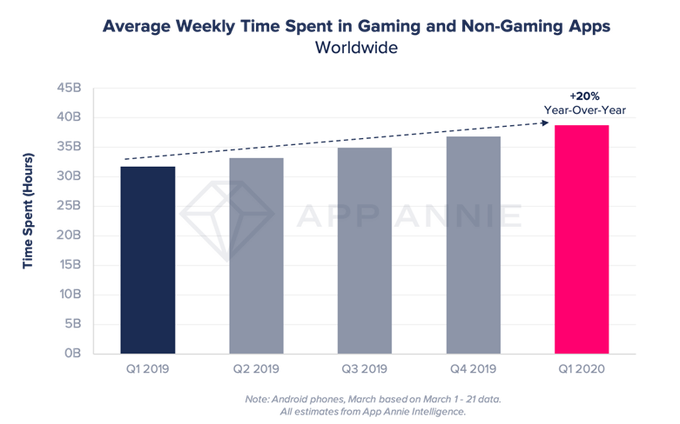Time spent in mobile apps has been surging, as people stuck at home due to the coronavirus outbreak have been turning to apps to do their shopping, manage their finances, find new exercises, work from home, and stay entertained. According to new data from App Annie, released today, Q1 2020 was the largest-ever quarter in terms of consumer spend on apps. In addition, the average weekly time spent in apps and games worldwide was up 20% year-over-year in the quarter, based on an analysis of Android devices.
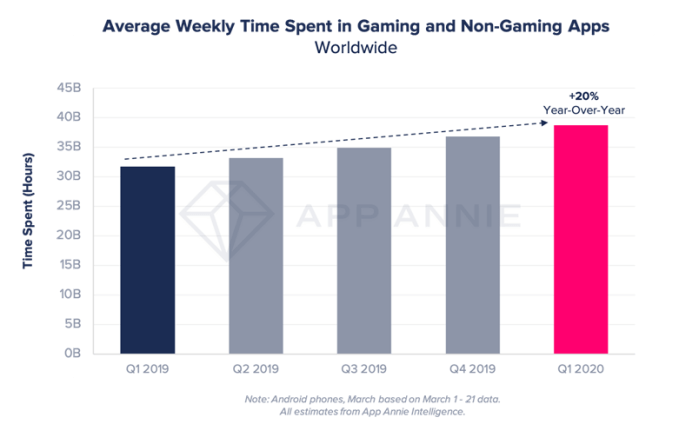
This has translated to a record increase in consumer spending on the app stores.
In Q1 2020, consumers worldwide spent over $23.4 billion through the app stores — the largest-ever quarter, App Annie said.
iOS accounted for $15 billion of that figure and Google Play was $8.3 billion. Both of these figures were an increase of 5% year-over-year on their respective platforms.
Non-gaming apps accounted for 35% of consumer spend on iOS and 15% on Google Play. Meanwhile, consumers spent over $16.7 billion on games in the quarter.
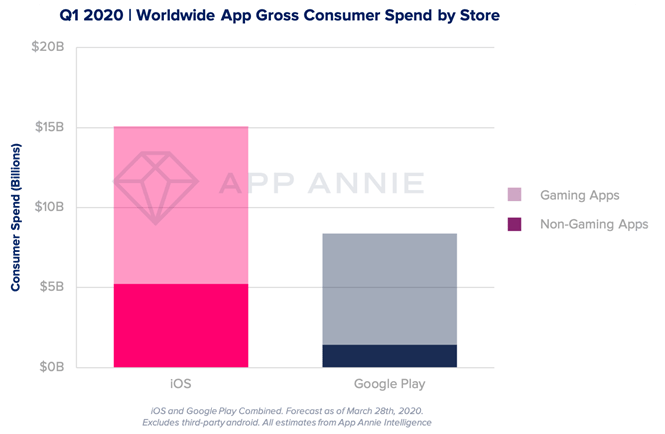
The U.S. and China were the largest contributors to consumer spend on iOS and the U.S., Japan, and South Korea were the largest on Google Play.
Android users spent the most on Games, Social, and Entertainment apps, thanks especially to Disney+ and Twitch.
Meanwhile, iOS users spent the most on Games, Entertainment, and Photo and Video apps, with TikTok notably breaking into the top 5 by consumer spend on iOS in the quarter, at No. 3 behind Tinder and YouTube.
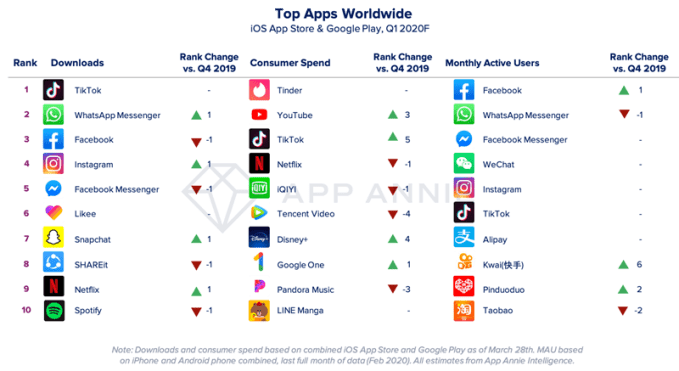
31 billion apps installed in Q1 2020
There were also 31 billion new app downloads in Q1 2020, up 15% from the fourth quarter of 2019. That’s notable, given that the fourth quarter usually sees a big boost in app installs from holiday sales of new phones, and Q1 managed to top that.
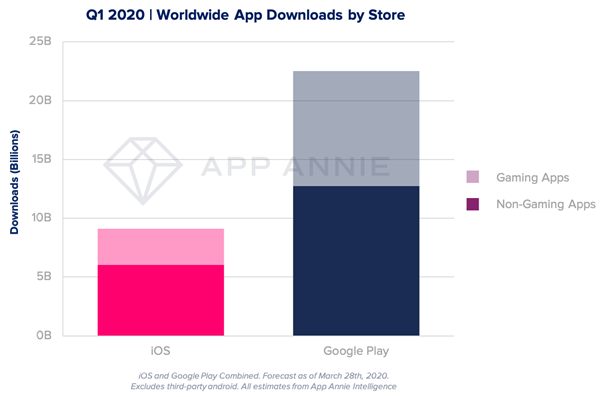
On Google Play, downloads were up 5% year-over-year to 22.5 billion while iOS downloads were up 15% year-over-year to over 9 billion.
Non-gaming apps on Google Play accounted for a majority (55%) of downloads and on iOS, they were 65% of downloads — an indication that people were looking for a variety of mobile apps to manage their newly stay-at-home and work-from-home lives, not just distractions.
The largest markets for Google Play downloads were India and Brazil, owing to their sizable populations and preference for lower-cost, Android devices. On iOS, China and the U.S. were the two largest markets by downloads and the main drivers of download growth for the quarter.
Mobile Games, Tools, and Entertainment were the largest categories for Google Play downloads while Games, Photo and Video, and Entertainment were the largest categories on iOS.
On both platforms, Games drove the most growth.
In Q1 2020, mobile game downloads grew 20% year-over-year to reach over 13 billion in the quarter. They were also up 30+% on a quarterly basis.
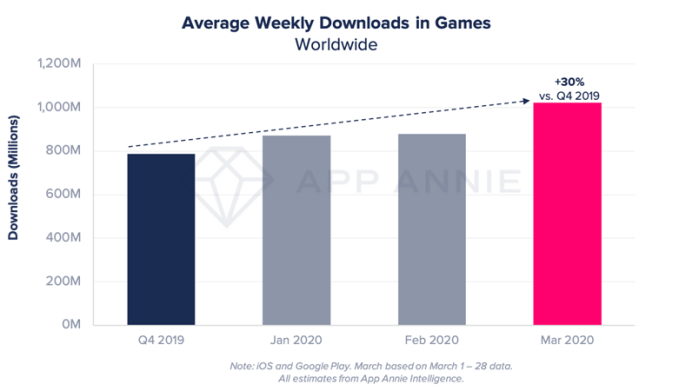
On Google Play, game downloads were up 25% to nearly 10 billion, year-over-year, and on iOS they were up 25% to top 3 billion in Q1.
Users downloaded Puzzle, Simulation, Action, Simulation and Arcade games in the quarter, but spent the most on Role Play, Action, and Strategy games, as is typical.
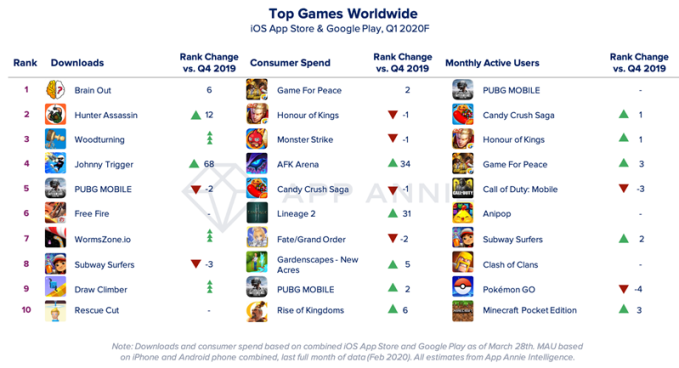
Other categories seeing strong downloads across both platforms included Heath & Fitness, Education, and Business. Health & Fitness was up 40% on Google Play and 30% on iOS, quarter-over-quarter. Education was up 35% on Google Play and 40% on iOS. And Business was up was up 30% on Google Play and 35% on iOS.

